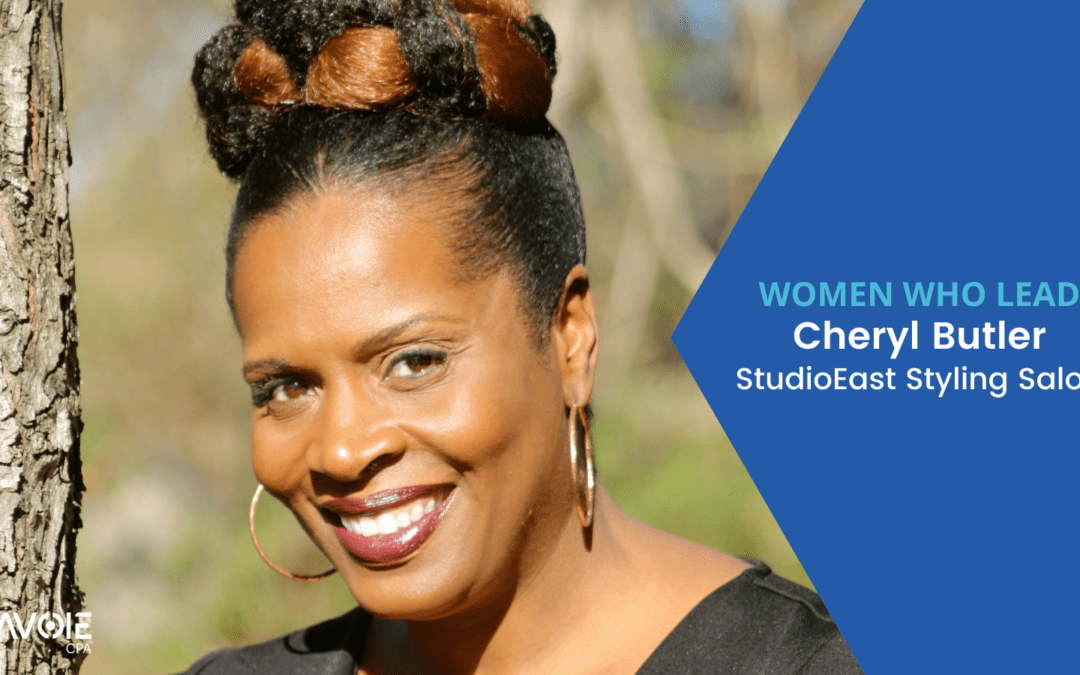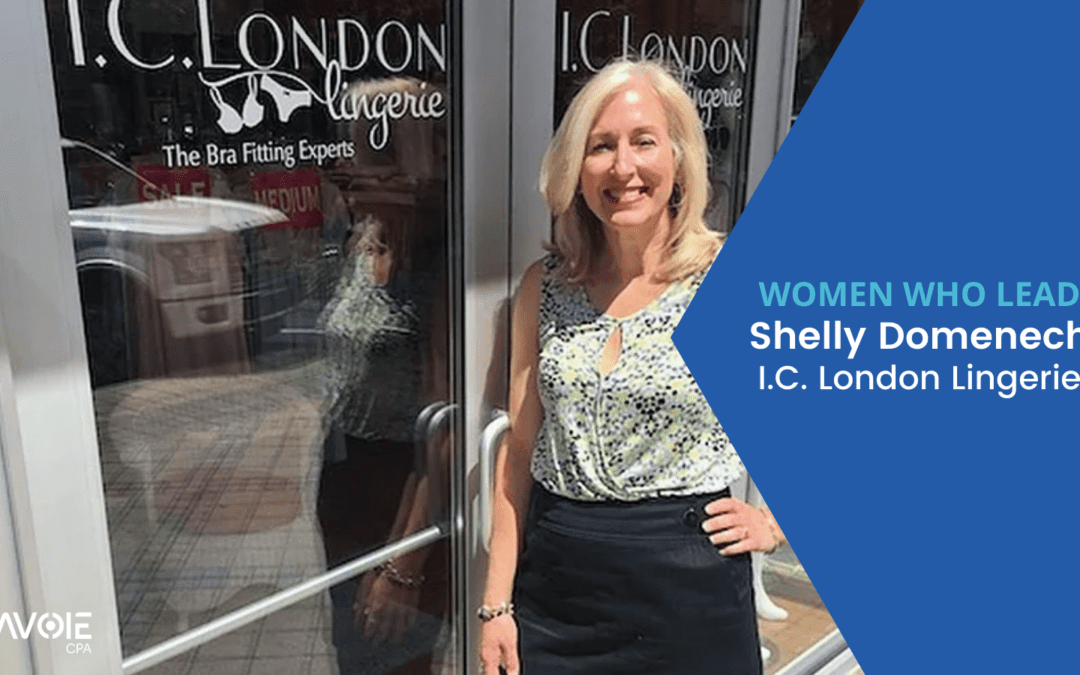
Women Who Lead: Cheryl Butler with StudioEast Styling Salon
Each #WomenWhoLead feature will be showcased on a wall mural in South End Charlotte. If you know a woman leader who you want to feature on the wall, please click the button to nominate her.
Cheryl Butler’s parents were perturbed by her pivot in her new career. At least at first.
After studying accountancy at Johnson C. Smith University and securing a full-time position at a credit rating business, Butler became restless. She was living the American Dream, but she felt bored and disinterested. And so, after seven years, she quit her corporate gig to pursue her career as a full time cosmetologist and open StudioEast Styling Salon.
“My parents couldn’t fathom the idea that I would leave this job with a salary, benefits, and stability to style hair,” says Butler. “That’s how simple it was for them.”
Today, nearly 20 years later, StudioEast is thriving. That’s because Butler, a “master stylist,” offers much more than haircuts and highlights. As a small business owner, she feels a certain responsibility to mentor other aspiring female entrepreneurs. We sat down with Butler to hear more about woman-to-woman mentorship, cosmetology, and passion.
Where did your love for hair come from?
I grew up in a hair salon. My sister is a hairstylist and she’s about 17 years older than me. When I got to high school, I started working with my sister. I would assist her by blow-drying or shampooing clients. Those skills just stuck with me.
Then, when I was in college, I started using my skills. I started doing friends’ hair and those friends became paying customers. I had a small, but not necessarily legal, business in my dormitory for about four years. It kept some change in my pocket.
You earned a degree in accountancy and were living the American Dream at a corporate job. Why did you leave that behind?
I have more passion for serving others by doing their hair than by crunching numbers. But it took me a long time to open my salon. Right out of college, I went to work for a credit rating company called Moody’s Investors Service. I enrolled in cosmetology school part-time a few months after I started that job. Then, after I graduated from cosmetology school, I started working part-time in a salon while still working full-time in corporate America. I did that for seven years between two salons. After the sixth year, I realized that I just wasn’t passionate about my corporate job in the same way I was about the salon.
I could be creative and innovative in the salon even after working for eight hours at Moody’s Moody’s Investors Service. I had a second wind. It was like I was starting my day all over again. My clientele was growing so much that I would go to the salon at 6 a.m. before my 8-to-5 job. Then, I would go to work. At 5 p.m., I would rush back to the salon for afternoon appointments. It was just common sense — I could see that I had so much more passion for hairstyling.
What about your corporate job didn’t jive with your personality and lifestyle?
When I was in corporate America, I enjoyed the people, but I never developed a passion for the job. It was just that — a job. I was crunching numbers and I knew the product. I had even grown in the company, transitioning from an analyst to an editor. But I realized that the job was no longer interesting to me. It was the same thing, month after month after month. It was the same information, the same data, the same timeline. Nothing was ever different.
Another thing that bothered me about the corporate world was that I had to wait a whole year for someone to tell me that I was doing a great job. There was no instant gratification. But in the salon, it’s all instant gratification. When a client reschedules with me, it’s like they’re saying, “Hey, I appreciate you.” When they send a referral, it’s like they’re saying, “You’re doing such a great job that I want everybody to experience what you have to offer.”
Did you receive pushback from friends and family when you left your corporate job?
I most certainly did from my parents, who paid my tuition and put me through school. They were concerned about security. They wanted to make sure I could provide for myself. It was hard to tell my parents that this was what I wanted to do. The saving grace was that I didn’t rush. I didn’t just jump into it. It was definitely a leap of faith, but I planned. I didn’t have to move back home or sell my car. I was still able to take care of myself, and that helped.
My friends didn’t judge because they saw me working so hard. They saw me working two jobs. They saw my social life diminish to nothing. They saw me working in the morning and the evenings. They saw that I couldn’t accept invites for events. Sometimes, if I did go out, I would just fall asleep because I was so tired. But I had a goal and a purpose.
Tell us about the early days of your salon.
When I first started, I was working part-time in a salon as a booth renter. It was a small space for a reduced price. It was pennies — maybe $75 a week. I worked there for four years and then I went to a spa as an independent contractor. Then, in 2002, I opened StudioEast Styling Salon in a 1,200-square-foot building. I was there until March 2020. I downsized just before things closed because of COVID-19. I’m in a salon suite now.
You’ve owned your salon for nearly 20 years. How do you ensure that your business doesn’t stagnate?
In 20 years, I did sustain and grow a great business it was definitely not completely stagnated by the change in our community around us.
Marketing and branding were an expenditure we could not afford to work without. We ran commercials on Time Warner, annual print ads in the USA Black Pages and a sponsorship walk with “Bottles and Bottoms. I continually provided advanced training to new and existing stylists. I offered business training and coached stylist to assist them with growing their own strong clientele. We traveled to trade shows and participated in community events like “For Sister’s Only” to build a strong team that worked well together. We even sponsored a Live Television show here in the Queen City “Give Me The Mic Charlotte”, I drove for a teamwork environment that would promote our business and better service our clients. We also used exclusive professional products only that set us apart. Providing a warm, clean and welcoming professional environment was a huge part of our customer service. The environment around us changed over the years.
I did stagnate, out of fear. I knew for a while that I needed to relocate my salon. The environment around it was changing. There was less foot traffic of potential clients and more panhandling. A lot of people were hanging around and they weren’t always pleasant. The experience that occurred on the inside of my salon didn’t match the outside.
I needed my stylists to feel like this was a place where they could grow. I knew that it was time to make the change. I dragged my feet because the location was convenient to my home and my son’s school. I wish I had moved forward faster.
Small business owners are constantly growing and evolving. What’s something new that you’re learning right now?
COVID-19 was unfortunate overall. However, for my business, it was a blessing. It gave me time to reorganize and restructure. For a while now, I have wanted to become more of a business operator. I have wanted to get out from behind the chair and run, manage, and grow the salon. But that has been hard because I wear so many hats.
While we were home from March to June, I was able to reorganize my business by making calculated decisions. I looked at my time — how much time I was spending with a client and how often the client came to me. I also looked at my products. There are only so many services or clients I can do, so retail is important. I needed to make sure I was offering my clients products that could help them. If they aren’t going to buy hair products from me, they’re going to buy them from somewhere else. I reimagined my business plan completely. My advice, trust the process, be prepared to pivot, plan, prepare and move forward when the need arrives.
As a female business owner, what do you think needs to change to help more women become entrepreneurs?
In this industry, female hairstylists have more many challenges because we’re mothers, we’re homemakers, and we’re caregivers. We’re more stretched than our male counterparts when it comes to home/work balance in many cases. My fiancée works for himself as well, our work loads are somewhat different when I get off work at the end of the day than his home responsibilities. The long hours and the 7-day work week required to grow a strong business in the beginning is challenging if you have a family and you are a mother. That might be because when women are more focused on business than family, it’s judged. Women support groups and more shared responsibility all the way around would even out the playing field.
Also, when I talk to people in this industry, they’ll say, “Oh, it’s hard to work for women.” Or they’ll say, “Women are so catty. I’d rather work for a guy.” That’s something we need to improve on. We need to respect and honor the leadership of women in business.
Is there anything else you would like to share?
I’m so passionate about this industry, particularly African American salons. It is my dream and hope to see more licensed cosmetologists retire successfully from this industry. People like to sit in the chairs of people who look like them. Multicultural salons would add such value to the artistry of our business. So, I offer training for others, one-on-one sessions, and mentoring. I go to beauty schools and give back because it’s something I enjoy doing. I want to inspire other stylists who want to do this as a career.




